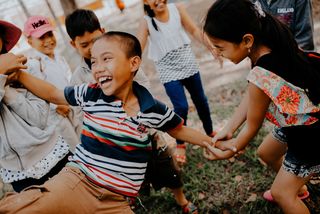
Autism
Increasing Comfort Level in Social Situations
7 Strategies for Children on the Autism Spectrum
Posted July 29, 2019

Social skills training is often used to address the challenges that autistic children have with social interaction and social communication. Such training can provide a safe and structured way of learning how to navigate the social world. But is it enough?
Some time ago, while practicing in Ireland, I ran a social skills group for teens on the autism spectrum. The members had little difficulty with learning and practicing skills (e.g. greetings, conversational starters, body position). However, the group felt a bit stilted and members seemed hesitant in their interactions. On a whim, I decided to change the format of the group by starting each meeting with a relaxation strategy. Not only did the members find the relaxation strategies to be useful but I discovered that their interactions with each other were much more spontaneous and natural. This experience taught me that helping kids to feel comfortable in a social situation was just as important as any of the skills that I could teach.
My clinical experience is supported by research demonstrating relationships between levels of social anxiety and degree of social difficulty in children on the autism spectrum (e.g. Chang, Quan & Wood, 2012). The conclusion that I've drawn from my clinical experiences, research findings, the input of parents and teachers, and from insightful firsthand accounts by autistic persons is:
You can teach children all the social skills in the world but if they don't feel comfortable in social situations then they are not going to be able to carry out those skills.
This is not to say that social skills training does not have its benefits. Additionally, it is important to note that social skills training programs have evolved to include much more than the rote practice of skills. However, given the extent of anxiety experienced in social situations, it is imperative that any support plan for social interaction include concerted efforts to address comfort level.
Strategies

Seven ways to help increase the comfort level in social situations for autistic children are:
- Address Sensory Issues. Many social situations contain strong sensory elements such as noise, crowds, and bright lights. Find ways to minimize distressing sensory input and help your child to come up with a plan for coping if sensations become overwhelming.
- Start with Small, Structured Situations. When learning new social skills, children on the autism spectrum tend to do better in small, structured situations. Start off with 1:1 or small group settings and then expand as the child becomes more comfortable.
- Clarify Expectations. Predictability can help to counteract anxiety in social situations. Before a social situation (particularly a new one) help your child to understand what will occur and how events will likely unfold. Of course, you cannot predict everything that will occur in a social situation but having at least a general idea of what to expect will help.
- Support Communication Needs. Social situations often involve high demands on language processing. This can increase anxiety levels. Be sure to include any language supports (e.g. visual supports, assistive devices, conversational prompts) in social situations.
- Focus on Interests and Strengths. All kids function better socially when doing something that they are both interested in and feel competent at. Find social activities that make your child feel good while also placing your child amongst peers who share some of the same interests.
- Ensure that Peers are Accepting. Find peers who are accepting and tolerant and who value your child's company on its own merit. Most children are open to understanding and looking past unexpected behaviors if provided with guidance and role-modeling from adults.
- Provide Gentle Praise and Encouragement. Take the pressure off of "making friends". The natural benefits of interacting will take hold when your child comes away from social situations feeling accepted and empowered.
Key Takeaways
- Social situations often create high levels of anxiety for kids on the autism spectrum.
- Anxiety in social situations can make it difficult to learn or apply social skills.
- Social skills training can be useful but we must also address the comfort level in social situations.
- There is a range of strategies that can help address socially-related anxiety thereby providing a more secure environment for social growth.
References
Chang, Y.C., Quan, J., & Wood, J.J. (2012). Effects of anxiety disorder severity on social functioning in children with autism spectrum disorders. Journal of Developmental and Physical Disabilities, 24(3), 235-245.

